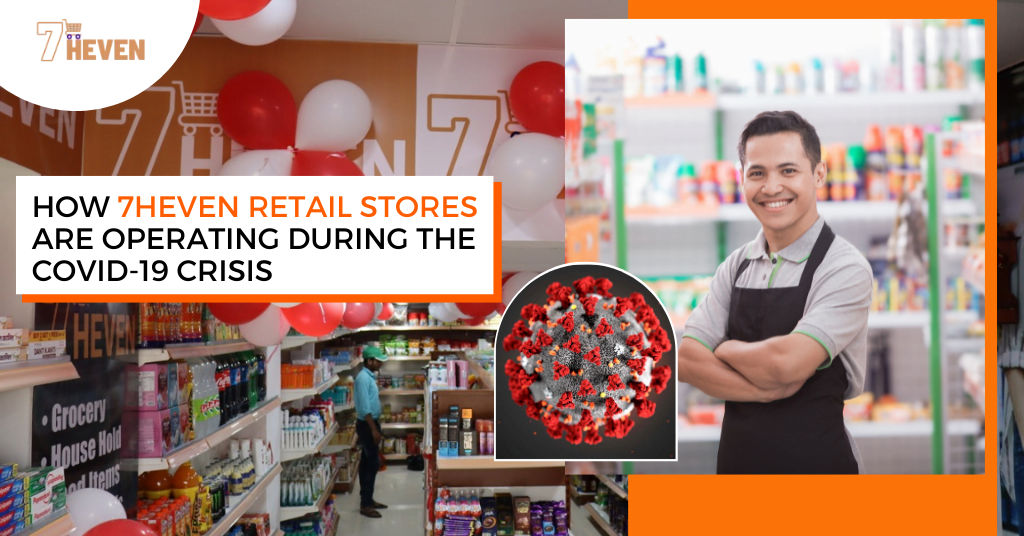When half of India is in lockdown mode, the death rate is increasing day by day. Governments worldwide are issuing guidelines and taking preventive action against the CoronaVirus and people to stay inside to break the chain of COVID-19.
Lockdown has forced people to stay inside, but shopping for essentials can not be stopped other than healthcare, forcing people to go outside their homes for groceries and other essential commodities and increasing the risk of possible contact with the virus.
The country’s government, charity trusts, and corporations are coming together to help people by distributing food, medicines, and other essential commodities through free home delivery. While people are used to foreign countries with the door-to-door delivery concept, people still thrive on old traditional Kirana stores for grocery shopping in India. These shopkeepers are running stores without preventive measures or any specific guidelines. They can be the next medium of community spread. A grocery shopkeeper interacts with several people daily. According to statistical data, there are more than 12 million, and most of them sell essential commodities open in lockdown. You can imagine how dangerous it can be to humans. A single shopkeeper can spread the virus to countless people. It becomes essential for the government to take necessary actions and frame shopping-related guidelines for these mohalla shops.
Let’s see, How 7HEVEN retail store are operating in India to avoid these unwanted consequences of COVID-19
1. Open store for essential only
There are more chances of coronavirus spread in crowded areas. So we have made a list of 7HEVEN stores from every corner of the country and informed people about the store’s operational hours to avoid the unwanted rush in the store.
2. Avoiding close space
A recent study says that coronavirus is airborne for a few hours before it settles down. Suppose an infected person enters a closed environment like a retail outlet, sneezes, and leaves the infected air within the outlet. There will be vast chances of another person getting infected in the grocery outlet.
In Europe, retailers took the initiative by putting essentials outside the store to avoid the mass spread of the virus. Similarly, We have also made necessary arrangements for the safety of our customers and employees and avoid possible contact.
3. Note based shopping
We have started a program to send us a note of their requirements or shopping list with their address and contact details. They can collect the order directly from our store or pick-up collection point in the city at their convenience. This practice may help us in reducing the chances of getting infected and can keep you healthy.
4. Easy billing options
Billing at the point of sale can be more vulnerable during this time because both the cashier and customer are in close contact. In most cases, store owners are cashiers who handle the products and cash with the same hands. To avoid this issue, we encourage people to make an online payment for their order and cash on delivery (COD) orders. We prefer contactless delivery.
5. Divide the Shopping hours
In the UK, giant Sainsbury supermarket has categories for shopping hours such as dedicated shopping hours for old citizens, medical service families, separate hours for youth, and much more. Research published by CDC stated that 50% of the first ten infected people were medical professionals which means that medical professionals including all staff members of the hospital are a more vulnerable group, due to their nature of the job they are the person who comes in contact with the numbers of infected people every day. Hence the distribution of groceries and other essential commodities should be different from the others. In the same way, we have separate dedicated hours for holders to avoid the infection of COVID-19.
6. Servicing only Essentials
We are servicing the deliveries of essentials only currently to avoid the pressure on the backyard supply chain and decrease the involvement of customers with us. We have also limited the item on shopping to avoid a frequent shortage of stock.
7. Role of 7HEVEN
7HEVEN has understood the safety of a person to provide aid to people. We have established our store in every corner of the country to facilitate people. Our prime focus is on the health of villagers, middle-class families, who still used to go outside to purchase groceries; and face many problems such as crowded areas, long billing queues, and traffic, increasing the chances of COVID-19 infection. To ensure our customer’s and employees’ safety; we keep monitoring every employee’s health by sanitization, awareness programs, frequent screening tests, and preventive measures.
Conclusion
We are screening our delivery Boys daily. Shopping in stores is no longer a peaceful time. Customers should Avoid their visits to Stores Due to Pandemic Time. For example, suppose 100 unaware families visited a grocery store for shopping or only one trained delivery person visited 100 houses for doorstep delivery. In that case, the risk is comparatively lesser than the latter one. Shopping in stores is no longer a peaceful time. Customers should minimize their frequent visits to stores, always use protective gear such as masks, sanitizers, and avoid sending children/elders people outside. 7HEVEN stores function both in-store shopping and home deliveries. We facilitate the customer to place an order by WhatsApp or call to get easy doorstep delivery.


Your mode of telling all in this paragraph is in fact pleasant, all be able to simply understand it, Thanks
a lot.